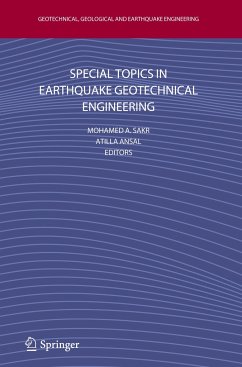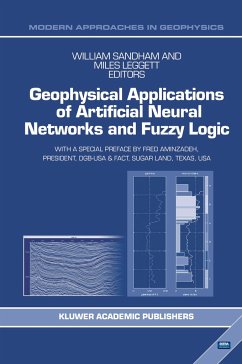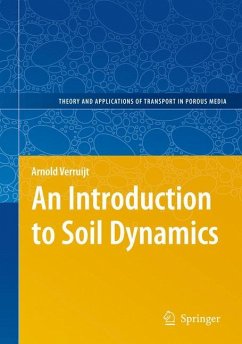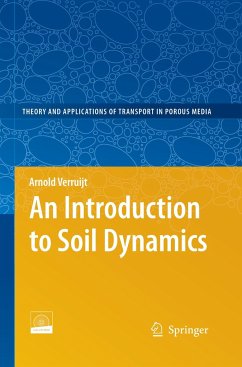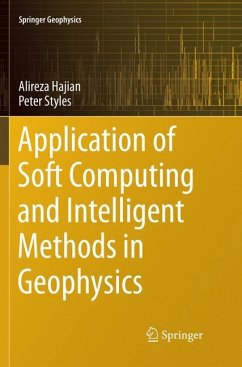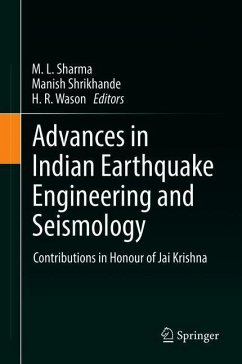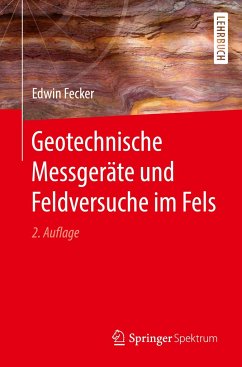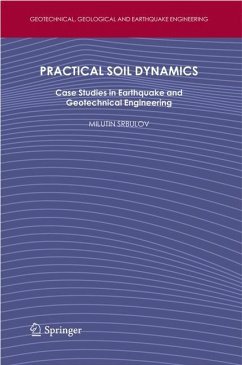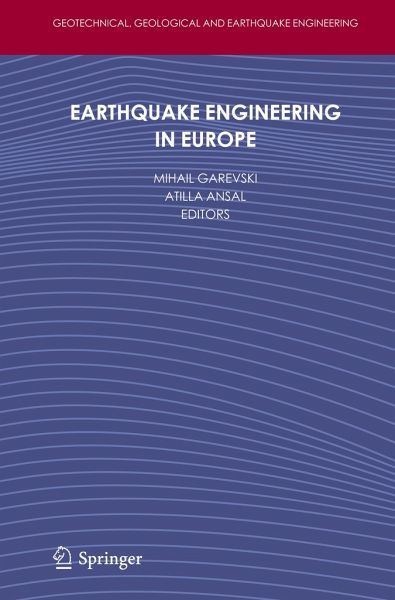
Earthquake Engineering in Europe

PAYBACK Punkte
38 °P sammeln!
This book contains 9 invited keynote and 12 theme lectures presented at the 14th European Conference on Earthquake Engineering (14ECEE) held in Ohrid, Republic of Macedonia, from August 30 to September 3, 2010. The conference was organized by the Macedonian Association for Earthquake Engineering (MAEE), under the auspices of European Association for Earthquake Engineering (EAEE).The book is organized in twenty one state-of-the-art papers written by carefully selected very eminent researchers mainly from Europe but also from USA and Japan. The contributions provide a very comprehensive collecti...
This book contains 9 invited keynote and 12 theme lectures presented at the 14th European Conference on Earthquake Engineering (14ECEE) held in Ohrid, Republic of Macedonia, from August 30 to September 3, 2010. The conference was organized by the Macedonian Association for Earthquake Engineering (MAEE), under the auspices of European Association for Earthquake Engineering (EAEE).
The book is organized in twenty one state-of-the-art papers written by carefully selected very eminent researchers mainly from Europe but also from USA and Japan. The contributions provide a very comprehensive collection of topics on earthquake engineering, as well as interdisciplinary subjects such as engineering seismology and seismic risk assessment and management. Engineering seismology, geotechnical earthquake engineering, seismic performance of buildings, earthquake resistant engineering structures, new techniques and technologies and managing risk in seismic regions are all among the different topics covered in this book. The book also includes the First Ambraseys Distinguished Award Lecture given by Prof. Theo P. Tassios in the honor of Prof. Nicholas N. Ambraseys.
The aim is to present the current state of knowledge and engineering practice, addressing recent and ongoing developments while also projecting innovative ideas for future research and development. It is not always possible to have so many selected manuscripts within the broad spectrum of earthquake engineering thus the book is unique in one sense and may serve as a good reference book for researchers in this field.
Audience:
This book will be of interest to civil engineers in the fields of geotechnical and structural earthquake engineering; scientists and researchers in the fields of seismology, geology and geophysics. Not only scientists, engineers and students, but also those interested in earthquake hazard assessment and mitigation will find in this book the most recent advances.
The book is organized in twenty one state-of-the-art papers written by carefully selected very eminent researchers mainly from Europe but also from USA and Japan. The contributions provide a very comprehensive collection of topics on earthquake engineering, as well as interdisciplinary subjects such as engineering seismology and seismic risk assessment and management. Engineering seismology, geotechnical earthquake engineering, seismic performance of buildings, earthquake resistant engineering structures, new techniques and technologies and managing risk in seismic regions are all among the different topics covered in this book. The book also includes the First Ambraseys Distinguished Award Lecture given by Prof. Theo P. Tassios in the honor of Prof. Nicholas N. Ambraseys.
The aim is to present the current state of knowledge and engineering practice, addressing recent and ongoing developments while also projecting innovative ideas for future research and development. It is not always possible to have so many selected manuscripts within the broad spectrum of earthquake engineering thus the book is unique in one sense and may serve as a good reference book for researchers in this field.
Audience:
This book will be of interest to civil engineers in the fields of geotechnical and structural earthquake engineering; scientists and researchers in the fields of seismology, geology and geophysics. Not only scientists, engineers and students, but also those interested in earthquake hazard assessment and mitigation will find in this book the most recent advances.




